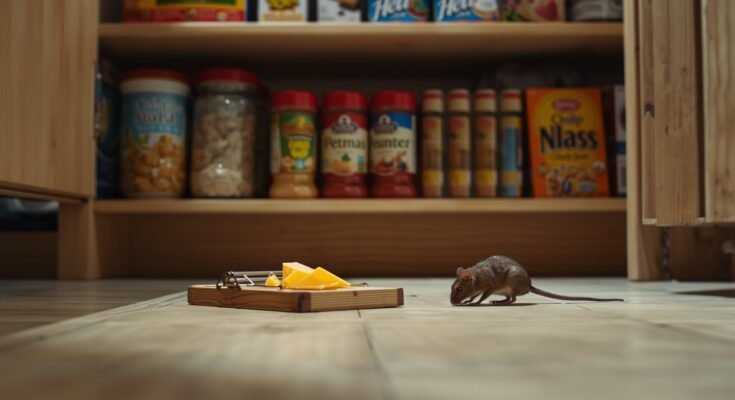Introduction
When you’re at home, busy with cleaning the kitchen or laundry room, without a care in the world, it can all change suddenly. Out of the corner of your eye, you might see something run by—small, dark, and gone before you fully realize it. That brief encounter with a mouse or a rat can leave you unsettled. I still remember the first time I saw one in my own house—it’s a moment that sticks.
Whether it’s trying to get rid of mice and rats in your garden or dealing with the worst feeling of them inside your home, the challenge is real. Over time, I’ve learned practical ways to stop them from returning, and it starts with knowing what signs to watch for and where they usually hide. Mice and rats are quick to adapt, but with the right approach, you can protect both your home and your peace of mind.
Potential mouse infestation and pest control
A potential mouse infestation can make anyone feel uncomfortable and concerned, and it’s natural to worry about the risks. I’ve seen many people in this same situation almost every day, and the best advice is to seek help from the experts in pest control who can really help you manage the problem quickly and safely.
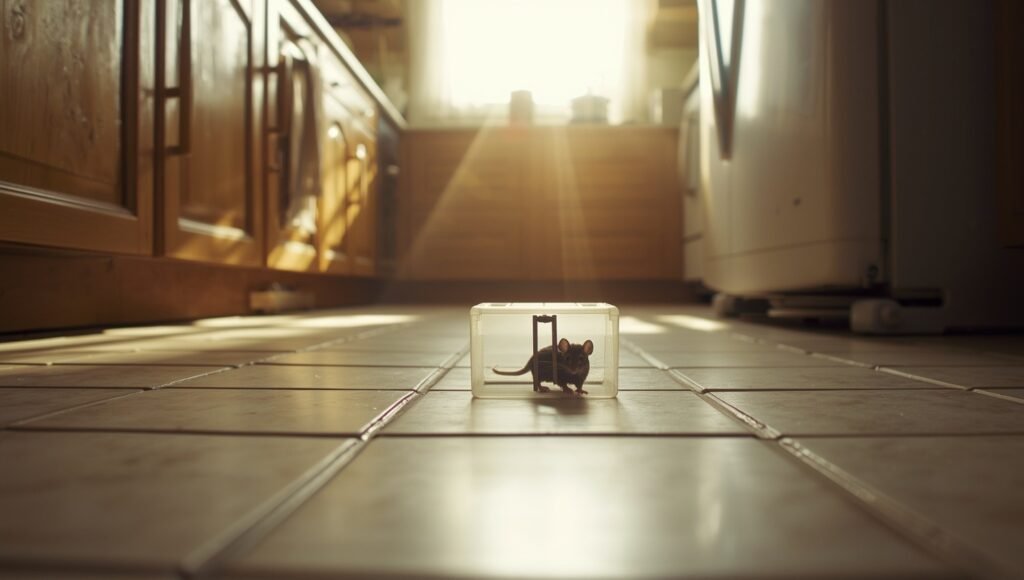
Targeted mouse treatments
When it comes to mice, they’re a common problem, but the quickest and most effective way to get rid of them in your home or business is through targeted mice treatments. These often include a fast response, a professional survey, and fast, effective mice treatments carried out by British Pest Control Association (BPCA) certified technicians who know exactly what to do.
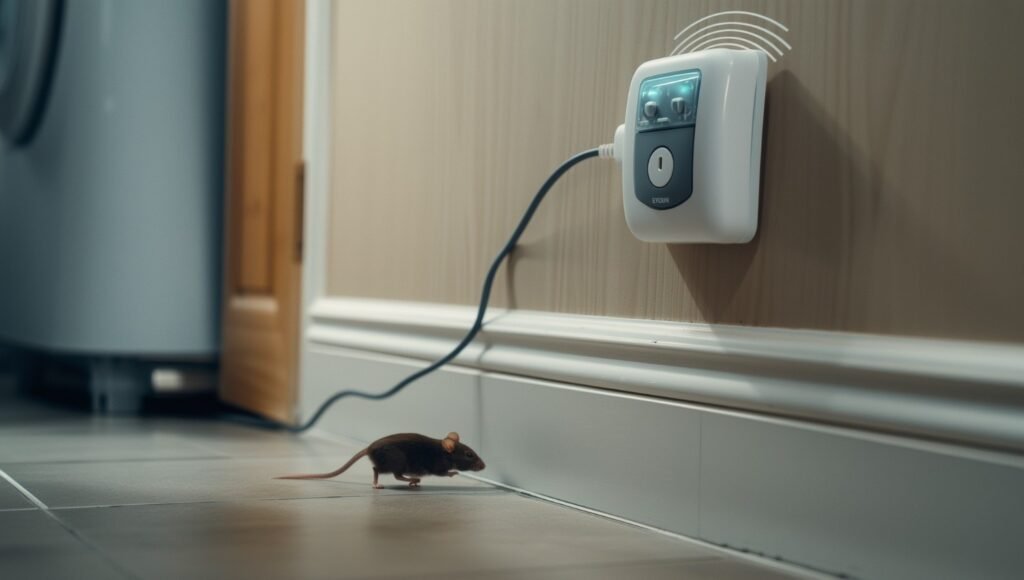
Old wives’ tales to get rid of mice
Some still believe the old wives’ tale that a cat will deter mice, since they do instinctively hunt them. But a well-fed pet is rarely an effective mouse control method. Others turn to plants that mice supposedly dislike, such as peppermint, chamomile, lavender, cloves, or chillies. These may act as a minor deterrent, but there’s no real promise they’ll completely solve your mouse issue.
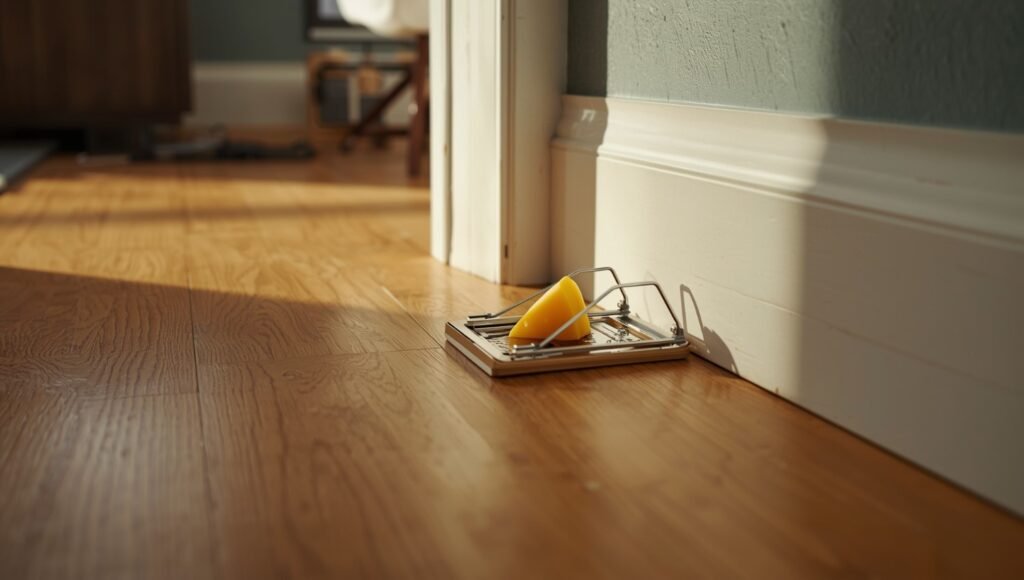
How To Get Rid of Mice At Home or Garden?
Having pests like mice and rats around your home can make even a welcome guest feel uneasy. I’ve seen them slip into the kitchen, climb onto the roof, and even frighten family members by carrying harmful diseases. Whether it’s an aged care property or your own house, spotting a mouse or rat is often a sign of something bigger. The best action is to act fast, take steps to get rid of these nasties, and avoid direct handling with your bare hands. Simple tips can go a long way in keeping your home safe from vermin.
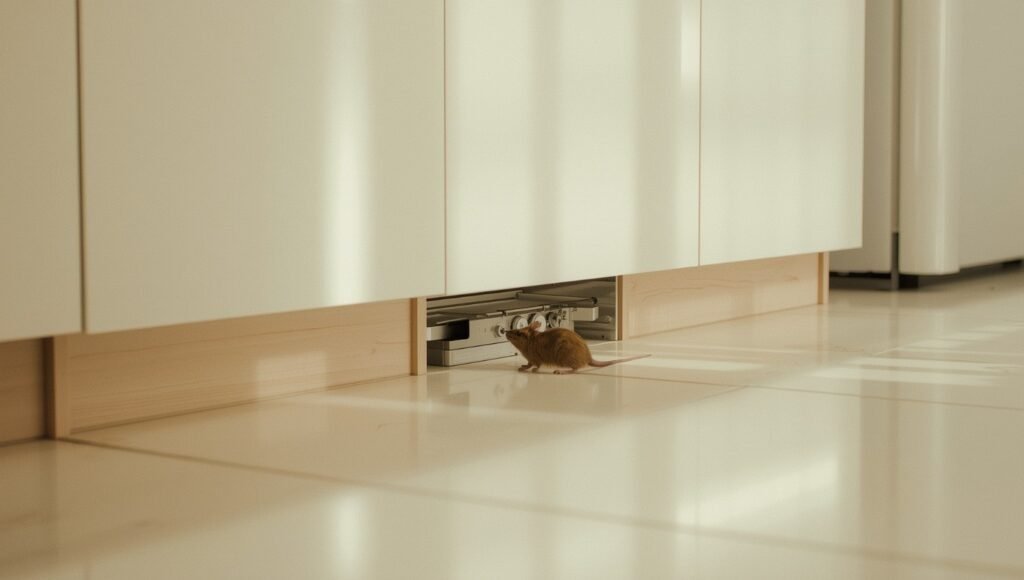
Use peppermint oil
A simple yet natural remedy I’ve relied on is peppermint oil. It’s one of the safest ways to rid your home, garage, or laundry area of mice and rats. Just dab the oil on cotton balls and place them around different spots in a room. Whether indoors or outdoors, the strong scent will drive rodents away, while staying safe for pets and humans. Make sure the oil is pure, and remember to reapply it often so the smell stays strong.
Use mothballs
Some people use mothballs as another natural way to get rid of rats and deter mice. They can help with control, but be cautious—mothballs are highly toxic to pets and humans. Eating them can cause severe sickness and even be life-threatening. Always place them directly from the box in well-ventilated areas where the problem exists, and never where children or pets can reach.
Use mouse and rat baits
In the market, there are many products of mouse and rat baits. Some use natural ingredients, while others are more potent. Depending on the doses and type, you may need to follow strict instructions to make the product truly effective.
Clean out the source
Often, mice and rats visit your house because of easy access to food. It might be bird seed, pet rabbits’ pellets in the garden shed, or simple garbage left out. Removing the source of their attraction is vital. Remove whatever draws them—whether it’s scraps for pests or even possums—and move bins further from your home so they don’t come back for a feast.
Create barriers
If mice and rats already have access to your home, look for holes in the walls or floors. Use filler to block cracks, gaps, and even tiny spaces in cornices and doorways. Sometimes you’ll notice an odour where they squeeze in. They’re incredibly sneaky, so even the smallest gap must be sealed.
Get help from your cat
If you own a cat or kitten, even their litter box or tray can help with a rodent problem. The strong smell of urine is enough to make mice clear out.
Purchase electronic pest control
I’ve tried devices that use electronic beeps or high-frequency sounds. These sounds can’t be heard by humans, but are hated by mice and rats. They can sometimes help with pests, but for stubborn rodents, the effect may wear off, and some of these gadgets are quite pricey.
Purchase traps
Traps are another option, especially humane ones that don’t kill the pests. If you use lethal traps, you may attract more nuisances as they try to breed in a survival cycle. Instead, catch and release them into a wooded or bushy area at least 2 km from your home.
Call in pest control
Of course, professional pest control remains the strongest solution. Experts and trained exterminators use environmentally friendly products to protect your family. Some even offer a warranty or guarantee. Beyond rodents, they can remove ants, cockroaches, fleas, spiders, and more. Their services ensure that your rodent problem is solved properly.
How to identify mouse poop and dispose of it safely?
Living in a home with mice is no fun—they’re noisy roommates who chew, gnaw, make noise, and risk contaminating your food. They often move in groups with their friends and house habits. If you want to remove them without harm, there are plenty of natural ways to get rid of them and keep them from coming back.

Understand the Habits of Mice
Mice are determined, habitual, and resourceful. To rid them naturally, know their nest and food source. They scurry just a few feet between homes, walls, or voids—often dry, quiet, and cozy spots like closets. They eat grains and fruit, and chew through cardboard or plastic. Being nocturnal, they come out at night to nibble along walls and corners, leaving oily smudges, fur, or droppings in their travel zone. These are clear signs of a problem.
Get Rid of Mice Using a Catch-and-Release Mouse Trap
Catch-and-release traps are practical, effective, and humane. These devices capture and contain mice so you can relocate them. Add bait like Tomcat® Attractant Gel or peanut butter (wear gloves to mask your scent) in the compartment. Once the spring-loaded door shuts, you’ve got a live mouse. Place traps in their travel zone—kitchen, pantry, attic, or garage—where the smell of bait will lure them. Be ready, as they may urinate when caught. Check every few hours, move them to an outdoor location, and clean the trap. A vet can also give recommendations. For fewer false triggers, try the Tomcat® Live Catch Mouse Trap, use water if needed, and reset it properly.
Natural Remedies to Repel Mice
One natural way to get rid of mice is to use their sense of smell against them. Place repellents where there’s food, garbage, or bait. Strong scents like ammonia mimic predator urine and its odor, while capsaicin from cayenne, jalapeño, or chili peppers makes a great powder repellent. Be cautious—it may cause irritation, and kids or pets could touch it. Even dogs and cats can help, though mostly to prevent an infestation. Use peppermint oil on cotton balls or mint sachets. For stronger effects, try ready-made repellents with essential oil technology like sprays or granules around entry points, sinks, garbage cans, garage, deck, patio, grill, or shed. These combine taste and smell to drive them away.
Tips to Mouse-Proof Your Home
To secure your home, start with food. Store pantry goods like grains and cereals in sealed containers, not cardboard. Fix leaks in pipes and drains, and make repairs. Keep things tidy—pick up pet food, morsels, or snack crumbs. Clean spills, manage trash in sealed bags, and keep the bin shut tight with a cord. Reduce odors by rinsing cans. Stow away clothing, bedding, and blankets in secure containers, not open shelves or boxes. Seal cracks and gaps with caulk, steel wool, or weather stripping. When winter hits, these tiny openings are prime entryways. Outside, remove fallen fruit, nuts, or debris, and move woodpiles far from the house to prevent nesting. With a bit of ingenuity, you can humanely mouse-proof your space.
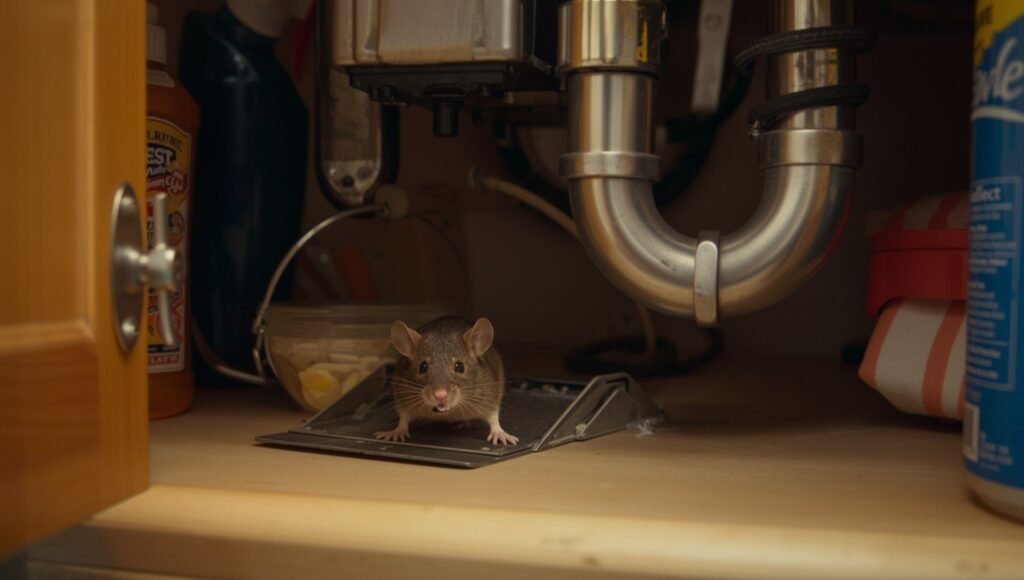
The Final Word
It’s said there’s an estimation of four rats for every person—a reminder of how serious infestations can be. Whether you try natural traps, budget solutions, or professional pest control, there are always options for different circumstances. To make your house truly pest-free, call in a professional who can help with long-term results.

